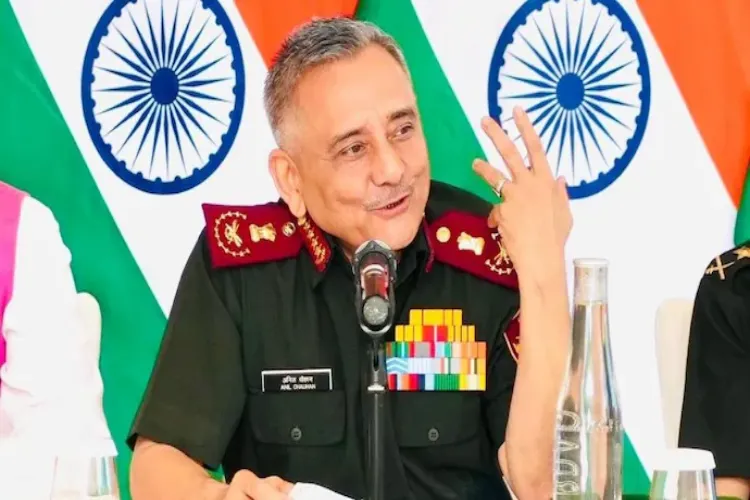
Pune
Chief of Defence Staff (CDS) General Anil Chauhan on Tuesday said that the armed forces would evaluate the data concerning the strikes' results based on technical parameters and come out with a rough assessment shortly, informing about the aircraft and radars destroyed by India during Operation Sindoor.
"Since there's always this inquisitiveness as to the result of strikes, which was visible more in the psychological domain, to all of us and everyone globally. We will take out this particular data based on technical parameters and share it with you. We will tell you how many aircraft we destroyed and how many radars we destroyed. We'll make a rough assessment and come out with that shortly," CDS Chauhan said while delivering a special lecture on 'Future Wars and Warfare' at Savitribai Phule University.
When asked about the losses incurred by the Pakistani side, he discussed people's inquisitiveness about them and asserted that it was not important to discuss losses since the crucial aspects that need to be considered are the results yielded and the actions taken during the conflict.
"When I was asked about losses on our side, I said these are not important. The results and how you act are important. It would not be very correct to talk about losses...Suppose you go in a cricket test match, and you win by an innings defeat, there's no question of how many wickets, how many balls and how many players," CDS Chauhan added.
He further revealed that Pakistani army chief General Asim Munir made communal statements against India and Hindus in a speech that was given weeks before the Pahalgam terrorist attack.
"Venom was spewed by General Asim Munir against India and Hindus in a speech, weeks before what happened in Pahalgam...Water and blood cannot flow together...We have raised the bar by connecting terror to water and drawing new lines for military operations," the CDS said.
General Chauhan added that Operation Sindoor created history in air warfare because India was able to penetrate the adversary's air defence networks. He said that there was a need to keep the guard up, given that Operation Sindoor was not over and the agreement for cessation of hostilities between India and Pakistan was only temporary.
"Operation Sindoor created history as far as air warfare is concerned. Successful operations were carried out against an adversary...If you are able to carry out relentless operations deep inside with precision and offensive intent. It was a big achievement, and we were able to penetrate those air defence networks," he said.
"Operation Sindoor is not over as yet. It continues. It's a temporary cessation of hostilities. There is a need to keep our guard up," he added.
Talking about India's intentions not to engage in a long-drawn conflict, CDS Chauhan recalled Operation Parakram, which was launched against Pakistan in response to the 2001 Parliament attacks, which incurred huge expenses since the security personnel were deployed for about nine months.
"From our side, we didn't want to get into a long-drawn conflict. We've seen our experience in Operation Parakram. We were there for almost nine months. It involves a lot of expenditure and disrupts everything. We had seen this to some extent after Balakot; there was a deployment, which we mobilised. In this particular case, what happened was that before this mobilisation could be completed, the operations were halted," the CDS said.
Making an informed guess, Chauhan said there could be two possibilities about Pakistan's decision to pick up the telephone to discuss halting the conflict, given that they were incurring losses at a long distance, and they would have thought that the losses would increase.
ALSO READ: Civil servant couple Anjum Ara, Yunus Khan show the way to honour fallen soldiers
"As far as the Pakistani side is concerned, I can make two guesses. One that they were losing things faster at a very long distance, and they thought that if this continued for some more time, they were likely to lose more, and hence they picked up the telephone," he added.
